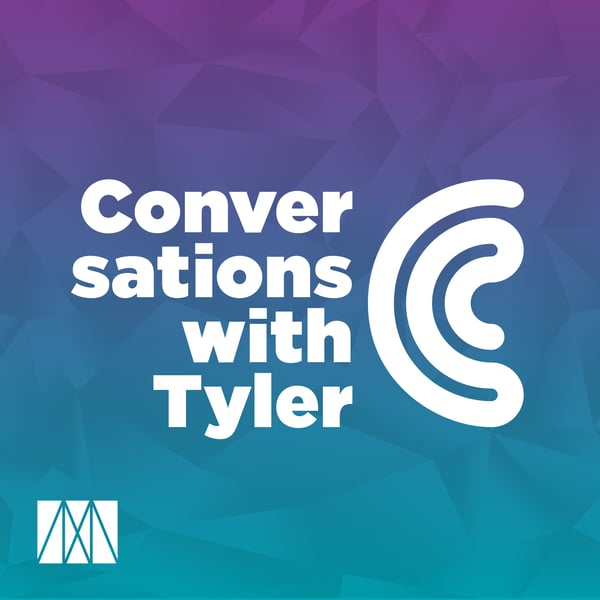Zeynep Tufekci on the Sociology of The Moment (Live)
Conversations with Tyler
Conversations with Tyler
4.8 • 2.4K Ratings
🗓️ 25 August 2021
⏱️ 66 minutes
🧾️ Download transcript
Summary
When Zeynep Tufekci penned a New York Times op-ed at the onset of the pandemic challenging the prevailing public health guidance that ordinary people should not wear masks, she thought it was the end of her public writing career. Instead, it helped provoke the CDC to reverse its guidance a few weeks later, and medical professionals privately thanked her for writing it. While relieved by the reception, she also saw it as a sign of a deeper dysfunction in the scientific establishment: why should she, a programmer and sociologist by training, have been the one to speak out rather than a credentialed expert? And yet realizing her outsider status and academic tenure allowed her to speak more freely than others, she continued writing and has become one of the leading public intellectuals covering the response to COVID-19.
Zeynep joined Tyler to discuss problems with the media and the scientific establishment, what made the lab-leak hypothesis unacceptable to talk about, how her background in sociology was key to getting so many things right about the pandemic, the pitfalls of academic contrarianism, what Max Weber understood about public health crises, the underrated aspects of Kemel Mustapha’s regime, how Game of Thrones interested her as a sociologist (until the final season), what Americans get wrong about Turkey, why internet-fueled movements like the Gezi protests fizzle out, whether Islamic fundamentalism is on the rise in Turkey, how she’d try to persuade a COVID-19 vaccine skeptic, whether public health authorities should ever lie for the greater good, why she thinks America is actually less racist than Europe, how her background as a programmer affects her work as a sociologist, the subject of her next book, and more.
Read a full transcript enhanced with helpful links.
Note: This conversation was recorded on July 14th, 2021, before the FDA granted full approval to the Pfizer-BioNTech COVID-19 Vaccine.
Other ways to connect
- Follow us on Twitter and Instagram
- Follow Tyler on Twitter
- Follow Zeynep on Twitter
- Email us: [email protected]
- Subscribe at our newsletter page to have the latest Conversations with Tyler news sent straight to your inbox.
Thumbnail photo credit: Berkman Klein Center for Internet & Society
Transcript
Click on a timestamp to play from that location
| 0:00.0 | Conversations with Tyler is produced by the Mercatus Center at George Mason University, |
| 0:08.4 | bridging the gap between academic ideas and real-world problems. |
| 0:12.5 | Learn more at mercatis.org. |
| 0:15.2 | And for more conversations, including videos, transcripts, and upcoming dates, visit |
| 0:20.4 | ConversationsWithT Tyler.com. |
| 0:30.7 | Hello everyone and welcome back to another episode of Conversations with Tyler. |
| 0:36.2 | Now I'm going to introduce Zaneb, but actually I'm not completely sure of the fully correct |
| 0:41.8 | pronunciation of her last name. |
| 0:43.7 | So Zaneb, would you please say your name for us correctly? |
| 0:46.7 | So I will, but I have to let you know there's no grand truth. |
| 0:51.2 | So you can just make it up and there would be nobody who knew what it was supposed to |
| 0:54.9 | be. |
| 0:55.9 | So you can've gotten away with whatever you wanted it to be, but it is Zaneb to fetch you. |
| 1:01.0 | Thank you very much. |
| 1:02.5 | Zaneb is starting as a professor at Columbia University in a new job. |
| 1:07.8 | She is the author of the renowned Twitter and tear gas, the power and fragility of network |
| 1:13.3 | protests, a highly influential book, and over the course of the last two years, she has |
| 1:18.8 | become one of the central American public intellectuals on the issue of COVID-19 having |
| 1:25.0 | been right about virtually everything ahead of all the curves, correcting the public health |
| 1:29.9 | authorities when they were wrong, confirming them when they were right, and she knows many, |
| 1:34.3 | many other things as well. |
| 1:36.0 | Zaneb, welcome to ConversationsWithT Tyler. |
... |
Please login to see the full transcript.
Disclaimer: The podcast and artwork embedded on this page are from Conversations with Tyler, and are the property of its owner and not affiliated with or endorsed by Tapesearch.
Generated transcripts are the property of Conversations with Tyler and are distributed freely under the Fair Use doctrine. Transcripts generated by Tapesearch are not guaranteed to be accurate.
Copyright © Tapesearch 2025.

